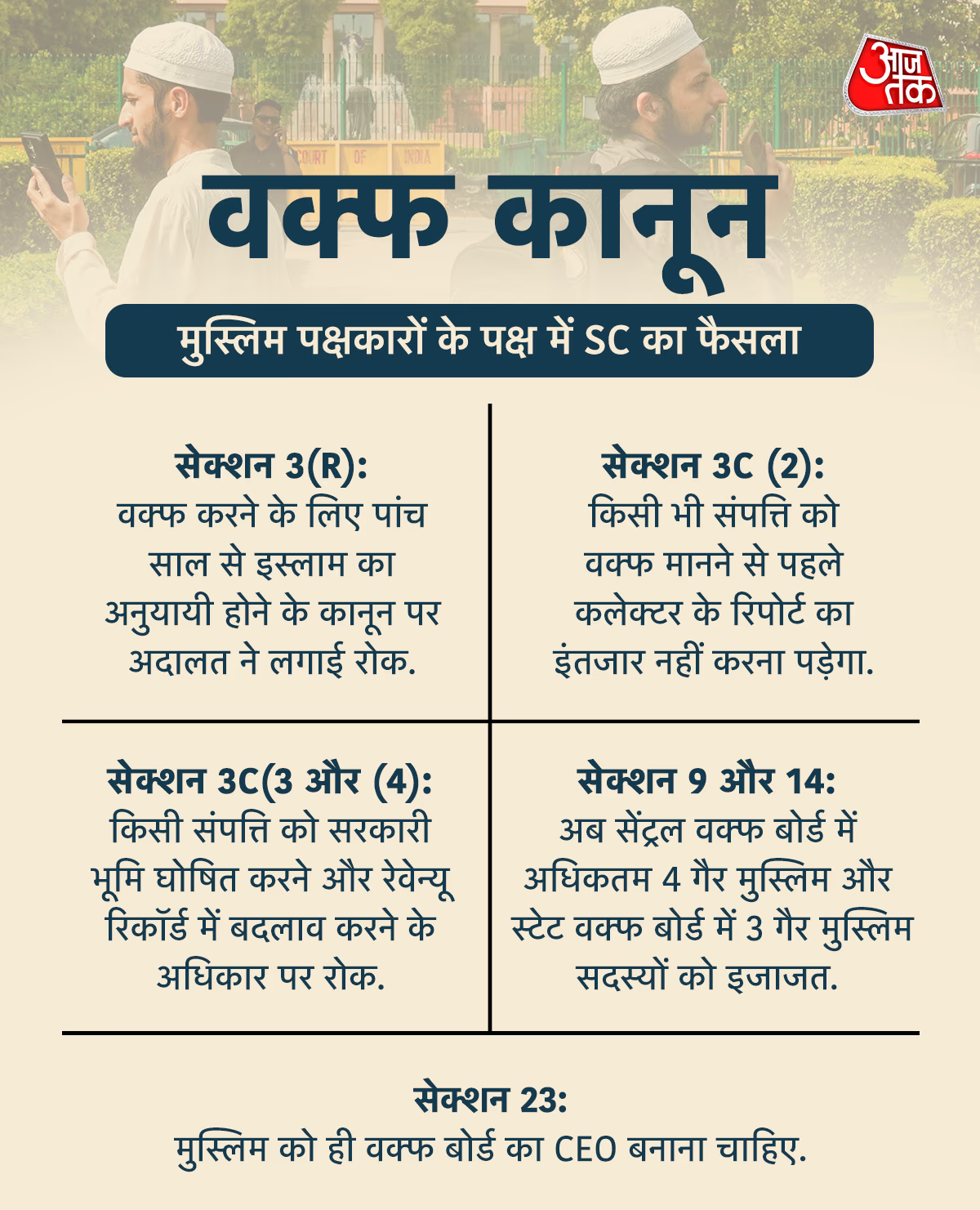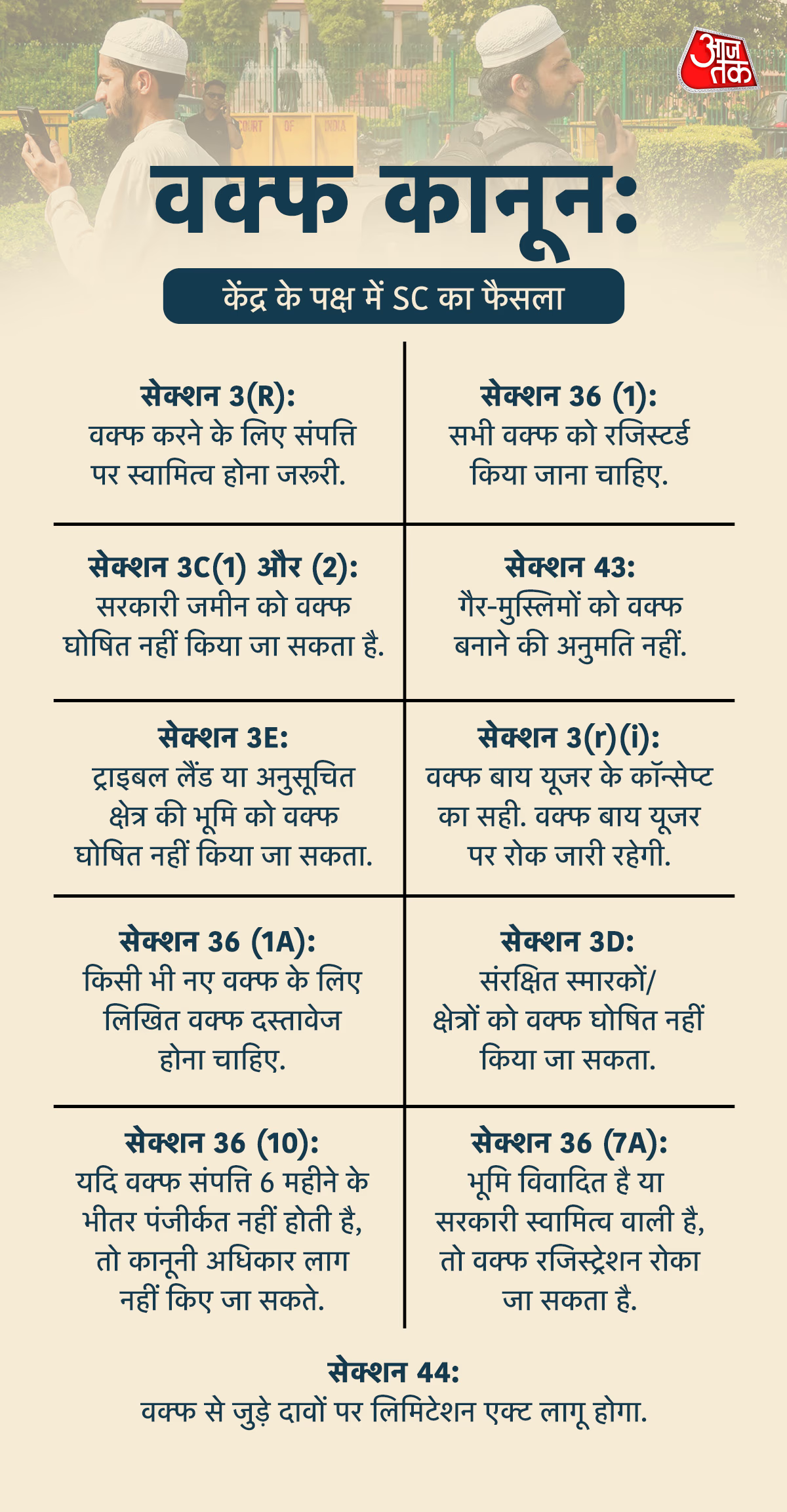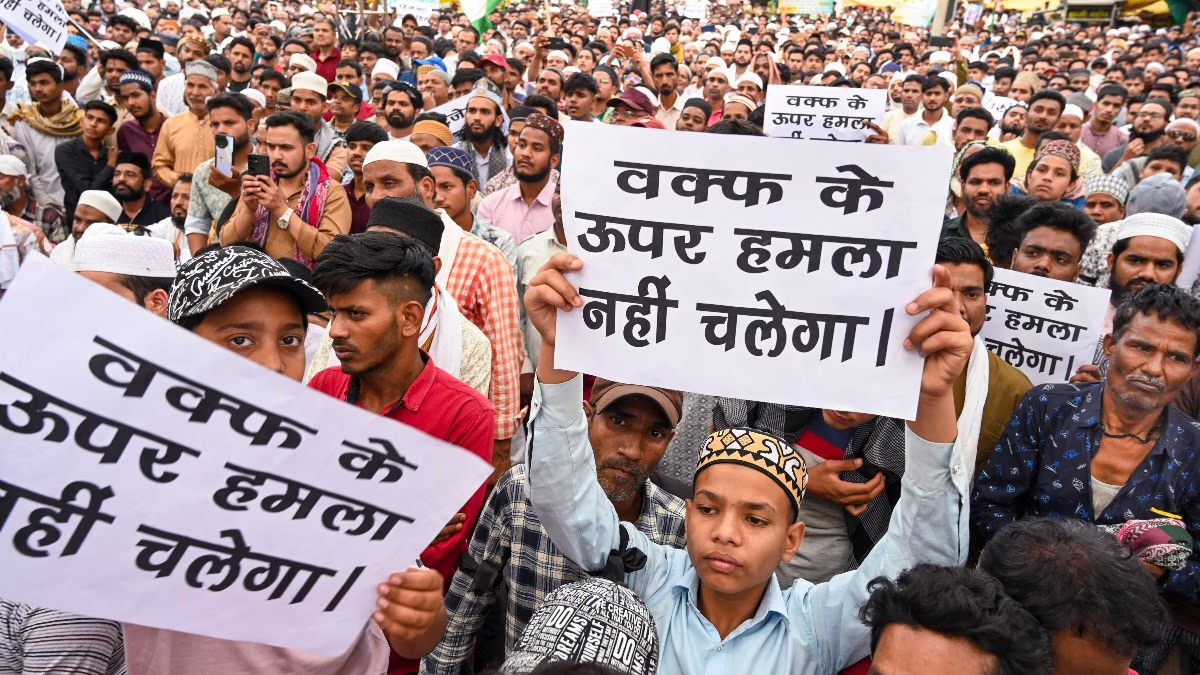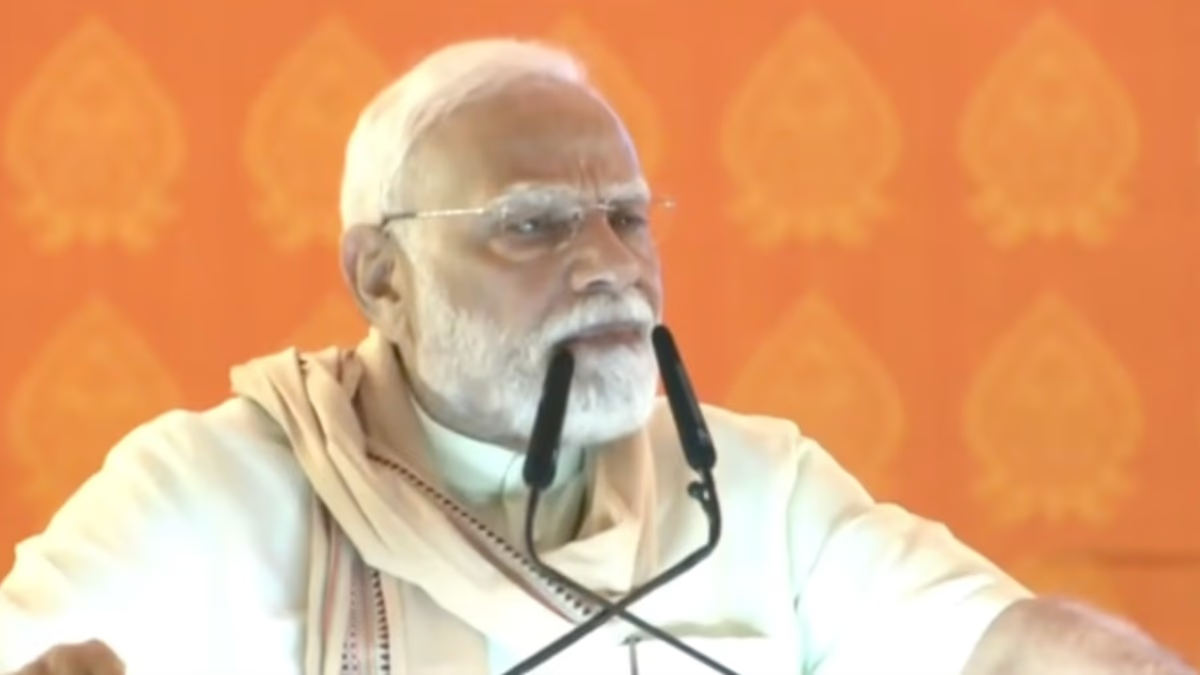The Supreme Court has refused to annul the Waqf Amendment Law 2025. However, the court has partially amended certain provisions and completely halted a section.
The bench of Chief Justice B.R. Gavai and Justice Augustine George Masih unanimously stated in an interim decision, "We are not halting the entire waqf law but are putting a hold on some provisions of the new law."
Let's understand the issues within the law where the court ruled in favor of the Muslim parties and the aspects where it upheld the central government's arguments without any changes.
Key Aspects of the Waqf Law Favoring Muslim Stakeholders

Source: aajtak
Section 3(R):
Requirement of practicing Islam for five years - The court has put a halt on this provision until a proper process to determine this eligibility is established.
Section 3C (2):
The Supreme Court blocked the provision where a property could not be considered waqf without a government official's (collector's) confirmation of no encroachment.
Henceforth, there is no need to wait for a government report before considering any property as waqf.
Sections 3C(3) and 3C(4):
The court halted the application of Section 3C(3), which allowed officials to declare property as government land and amend revenue records.
This order also postponed Section 3C(4), which required the State Government to instruct the waqf board to correct its records based on the official's findings.
Sections 9 and 14:
Entry of non-Muslims in waqf-related institutions - After the Supreme Court's decision, the government cannot appoint numerous non-Muslim members to waqf boards. The court set quotas allowing a maximum of four non-Muslims in the Central Waqf Board and three in State Waqf Boards.
Section 23:
Appointment of CEO - The court directed that, wherever possible, a Muslim should be appointed as CEO, not leaving it open to broader interpretation.
Waqf Law Matters Decided in Government's Favor

Source: aajtak
Section 3(R):
Necessity of ownership - To create a waqf, the individual must own the property. The court deemed this reasonable and non-arbitrary.
Section 3(r)(i):
Waqf by User - The Supreme Court found the concept of waqf by user invalid, citing misuse, hence continuing the restriction.
Sections 3C(1) and (2):
Government land cannot be declared waqf. The notion of verifying property ownership before declaration stands valid, even though some statute parts are halted.
Section 3D:
Protected monuments/areas cannot be declared waqf - The court is in agreement.
Section 3E:
Tribal lands or lands in scheduled areas are not subject to waqf declaration, with no court stay issued.
Section 36 (1):
All waqfs must be registered. The court upheld the law's validity.
Section 36 (1A):
A written waqf document is necessary for any new waqf - The court permitted this.
Section 36 (7A):
If a collector reports the land as disputed or government-owned, waqf registration can be halted. This law is valid with no court stay.
Section 36 (10):
Legal rights cannot be enforced if waqf property is not registered within six months. The court maintained this condition.
Section 43:
Non-Muslims are not allowed to create waqf - The Supreme Court retained this provision.
Section 44:
Limitation Act applies to claims related to waqf, enforcing a time limit for filing disputes. The court allowed this.
The central government announced the implementation of the Waqf (Amendment) Act, 2025, on April 8, 2025. President Droupadi Murmu signed the law on April 5. The bill was passed by Lok Sabha and Rajya Sabha on April 3 and April 4, respectively.




